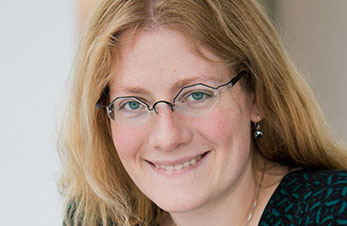What Happened and What Should I Do Next? Identifying Algorithms Multicellular Decision Making
Wed@Hariri: Meet Our Fellows Series
Allyson Sgro, Assistant Professor of Biomedical Engineering at the College of Engineering
When:
Wednesday, October 30, 2019
2:45pm to 4:00pm
Where:
Life Science & Engineering Building, 24 Cummington Mall, Room LSE 103
Abstract: Coordinating behaviors across groups of cells is critical for a wide range of biological processes ranging from development to wound healing. How information about these basic group behaviors is encoded at the level of single cells is still an open question. Cells have their own intracellular signaling programs that encode information about the environment and then have an algorithm to decided what to do based on this information, but the specific algorithms cells use in most cases are completely unknown. Furthermore, there are many different group behaviors populations of cells can exhibit. Identifying what single cells tune in their own programs to produce changes in their behaviors would yield parameters, we can control when reprogramming these systems for our benefit. To address this challenge, we are pursuing complementary efforts in multiple model systems where single-cell level and collective signaling can be simultaneously quantified with group behaviors. We are interrogating signaling algorithms in these systems using a combination of techniques to visualize and control cellular signaling. Through directly controlling signaling, we can causally link our observations of single-cell information processing algorithms to the population-wide behaviors they control. Together, these efforts will allow us to identify how population-wide multicellular behaviors are regulated by single cells.

Bio: Allyson Sgro is an Assistant Professor of Biomedical Engineering at the College of Engineering. Her research is creating new methods to observe and control cellular behaviors to develop a predictive understanding of how the signals inside and among cells shape group activity. Complex group behaviors—from biofilm formation to wound healing, tissue assembly, or cell development—are determined by communication between individual cells. In the past, technological challenges have prevented the connecting of microscale signaling events inside and between individual cells with the population-wide changes they cause. By identifying how cells communicate to work together in different organisms and contexts, she can design new tools to control this communication and reprogram cell behavior to engineer new functions and optimize human health. Sgro completed her Ph.D. and MS in Chemistry at the University of Washington. She received her BA in Chemistry and Pre-Medical Studies at Bard College at Simon’s Rock. She is also the recipient of a Burroughs Wellcome Fund Career Award at the Scientific Interface for extraordinary early-career interdisciplinary scientists furthering biomedical research.
